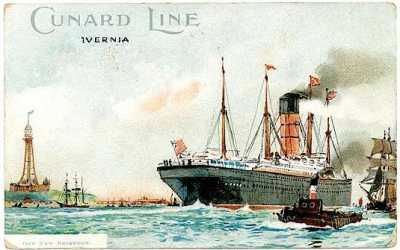Geoffrey Arnold Shaw was John Cowper's famous 'ring-master'. He was the son of Hudson Shaw, himself an eminent lecturer who had taken up the Extension lecturing in 1885 with success and who was also a keen advocate for social reform. Arnold Shaw was born in 1884 and after an uneventful youth and a passage in Balliol......something occured which caused a deep rift between Arnold and his father. It was decided that Arnold should emigrate to Canada. Therefore on 24 December 1904 Arnold Shaw joined the Cunard liner Ivernia at Liverpool, sailing for New York. He was twenty years old and was about to make the acquaintance of one of his fellow passengers, a tall, somewhat dishevelled and uncoordinated figure who kept himself apart from the other passengers.. Shaw was to be Powys's lecture manager for more than ten years as well as the publisher of eight of his books and was to remain a much-loved, but often exasperating, friend until his death in 1937.
(The Ideal Ringmaster, Paul Roberts, The Powys Press, 1996)

Courtesy of Encyclopedia Titanica
And what I was in my pantomimic clown-manner, my friend Arnold was in his humorous Yorkshire manner. We were in fact - lecturer and manager - what people call "a fair pair." I was the clown of our circus, and Arnold was the ring-master, the fellow with the smooth forehead, the bland smile, and the long whip. How roguishly he would crack this whip when his poor Cagliostro was despatched on a tour half across the Continent! "A mean jump for you, John!" he would say with a chuckle. (Autobiography)
So for twenty odd years, Arnold Shaw saw to John Cowper's lectures, and he also undertook to publish eight of John Cowper's books, as well as Theodore Powys's The Soliloquy of a Hermit (1916). John Cowper benefited from Shaw's interest in him, and reciprocated with sympathy and friendly feelings up to the end. But Shaw was unstable in his private life, and after 1920 met with many problems and bad health. He ended his years in poverty and died on Staten Island in February 1937. He was probably the first to coin the word 'Powysian'.
|
|